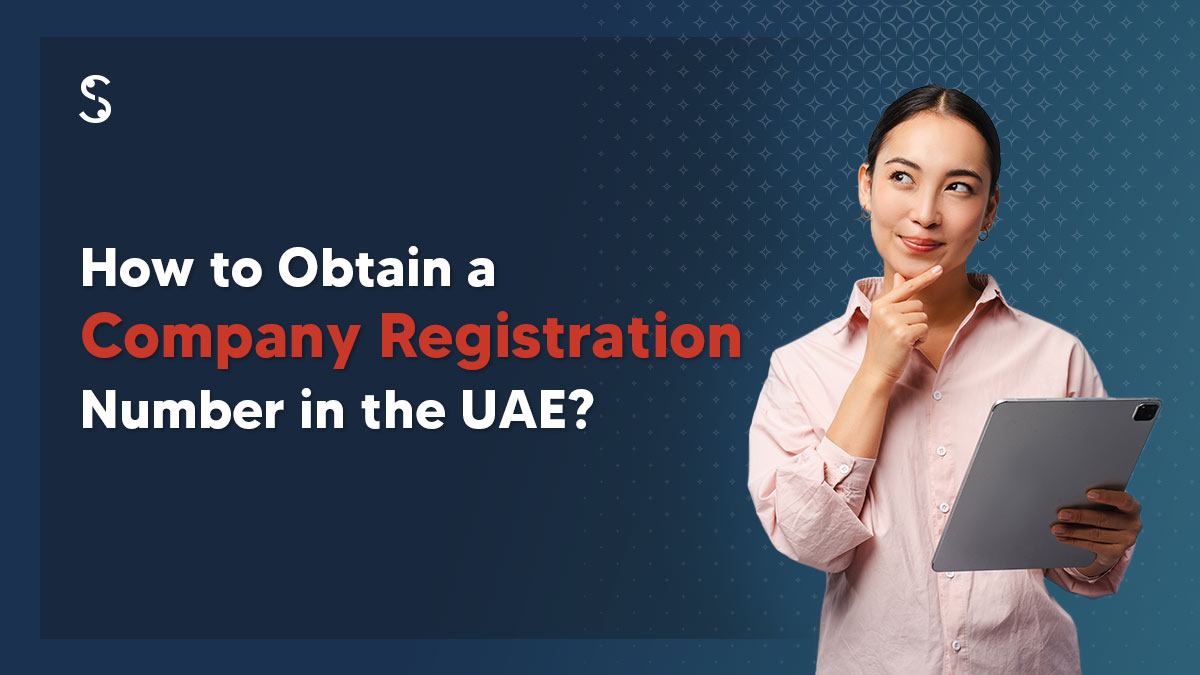Looking for an Offshore Company Formation in Dubai? UAE is a legitimate business organisation that allows you to conduct international trade while remaining outside the UAE's jurisdiction. Offshore companies can own property and businesses anywhere, including the UAE.
The UAE has been an excellent hub for companies worldwide since the rise of Offshore Company Setup in Dubai, UAE, in 2003. An offshore company is a business enterprise that does not carry out any significant business operation in its country of origin and may be owned by individuals or corporations.
What is an Offshore Company in Dubai?
An offshore company is a legal entity registered in Dubai or other UAE offshore jurisdictions, primarily for conducting business outside the UAE. Unlike mainland or free zone companies, offshore companies cannot engage in business within the UAE but can operate internationally.
Offshore Company Formation in Dubai is widespread for entrepreneurs and investors seeking a tax-efficient and business-friendly environment. Offshore companies provide flexibility, privacy, and international market access while benefiting Dubai’s strong financial and legal framework.
Activities Permitted for Offshore Companies in the UAE
Offshore companies in the UAE are limited to specific activities. Here are the key activities generally permitted for offshore companies in the UAE:
- Holding Company
- Investment
- International Trading
- Asset Management
- Intellectual Property (IP) Management
- Financial Services (Subject to Regulatory Approval)
- Consultancy Services
- E-Commerce
Benefits of Offshore Company Setup in Dubai
Setting up an offshore company in Dubai offers business owners, entrepreneurs, and investors multiple benefits. Here are some key advantages:
1. Tax Advantages:
Offshore companies in Dubai benefit from a tax regime, meaning limited corporate or no personal income tax, no VAT on offshore activities, and no capital gains or withholding tax. This makes it an ideal structure for businesses looking to maximise profits.
2. 100% Foreign Ownership:Offshore companies allow full foreign ownership without requiring a local sponsor or partner. This provides complete control over business operations, decision-making, and profits.
3. Asset Protection:
Offshore companies offer a secure way to protect assets from legal claims, creditors, or economic instability. Many high-net-worth individuals use Dubai offshore structures for estate planning, wealth preservation, and liability protection.
4. Privacy & Confidentiality:
Dubai offshore jurisdictions prioritise business privacy, ensuring that shareholder and director details are not publicly disclosed. This helps maintain financial confidentiality and protects business interests.
5. Cost-Effective Structure:
Offshore company setup is highly cost-efficient, with low registration and renewal fees, no mandatory office space, and no employee hiring requirements. This significantly reduces overhead costs compared to other business structures.
6. Global Trade & Banking Access:
Offshore companies in Dubai can engage in international business transactions and open corporate bank accounts in UAE banks or international financial institutions. This provides businesses with a reputable banking system and global trade opportunities.
5. No Foreign Exchange Restrictions:
Offshore companies benefit from a liberal financial environment, allowing free movement of capital, profits, and investments. There are no foreign exchange restrictions, making it easier to conduct business globally.
6. Easy Incorporation Process:
The setup process for a Dubai offshore company is quick and hassle-free, requiring minimal paperwork and, in some cases, no personal visits. Businesses can be registered within a few days, making it a convenient option for investors and entrepreneurs.
Where Can You Establish an Offshore Company in the UAE?
While Offshore Company Formation in Dubai is widely discussed, Dubai has only one offshore jurisdiction—Jebel Ali Free Zone Authority (JAFZA). Other UAE offshore jurisdictions include:
- Ras Al Khaimah International Corporate Centre (RAK ICC)
- Ajman Offshore
Requirements for Offshore Company Setup in Dubai
The requirements for Offshore Company setup in Dubai are as follows:- Minimum of one shareholder and one director (can be the same person).
- Registered agent in the UAE to handle documentation and compliance.
- Business activity details and MOA & AOA (Memorandum and Articles of Association).
- Share capital (varies by jurisdiction) is usually not required to be deposited.
Common Uses of Offshore Companies in Dubai
The common uses of Offshore Companies in Dubai are as follows:- Holding assets (real estate, intellectual property, investments, etc.)
- International trade and business expansion
- Wealth management and inheritance planning
- Consultancy and professional services
Types of Licenses for Offshore Business Setup Dubai
When forming an offshore company in Dubai, businesses can select from different types of licenses depending on the nature of their operations. The main types of offshore licenses include:
1. Trading License
A Trading License enables offshore companies to engage in international trade activities, including importing and exporting goods. This license is ideal for businesses dealing with physical products, commodities, or goods sold to customers outside the UAE.
2. Holding Company License
A Holding Company License is specifically designed for businesses wishing to own assets, such as shares, intellectual property, or real estate, without actively engaging in trading or production. Corporations and individuals commonly use it to manage investments and hold controlling shares in other companies.
3. Consultancy License
A Consultancy License allows businesses to offer professional advisory services in management, marketing, finance, IT, or other specialised consultancy areas. This license suits firms that provide expert knowledge or guidance to international clients.
4. Intellectual Property (IP) License
An Intellectual Property License is designed for companies that own, manage, or exploit intellectual property assets such as patents, trademarks, copyrights, and licenses. This license is ideal for businesses in creative industries, technology, or research sectors.
5. Service License
A Service License allows offshore companies to provide professional services to clients outside the UAE. These services can cover industries such as finance, legal, marketing, and other professional consultancy services.
6. Investment License
An Investment License is intended for companies that invest in other businesses or real estate. It is popular among private equity firms, venture capitalists, and asset managers.
These offshore licenses offer flexibility and various benefits depending on the type of business you want to operate. They allow you to take advantage of Dubai’s business-friendly environment while expanding globally.
How to Setup an Offshore Company in Dubai?
The process of setting up an offshore company in Dubai involves several steps to ensure legal compliance and successful business operations. Here's a more detailed breakdown of each point:
Step 1: Choose an Offshore Jurisdiction
Dubai offers offshore jurisdictions like the Jebel Ali Free Zone (JAFZA) and Dubai International Financial Centre (DIFC). Each jurisdiction has its own set of benefits and regulations.
For example, JAFZA is ideal for companies looking to do business internationally without paying local taxes, while DIFC is better suited for financial services. You need to choose the one that fits your business model and goals.
Step 2: Select a Company Name
Your offshore company’s name should reflect your business activities and comply with Dubai's naming conventions. The name should not be offensive or identical to an existing company.
It’s advisable to check the name availability with the relevant offshore authority to ensure your chosen name is accepted. Sometimes, the name must include words like "Limited" or "FZC" depending on the jurisdiction.
Step 3: Register the Company
After preparing the required documents, you must submit them to the offshore authority for registration. This will involve filling out specific application forms, selecting your business activities, and paying the required registration fees. Some jurisdictions offer online registration, making this step more efficient.
Step 4: Appoint Directors and Shareholders
Typically, an offshore company requires at least one director and one shareholder. An individual or a corporate entity can fill both roles. Directors are responsible for managing the company, while shareholders are the owners.
If you prefer a more private setup, you can have corporate shareholders and directors. It’s essential to ensure that the appointed individuals or entities comply with the specific regulations of the jurisdiction you are setting up in.
Step 5: Open a Corporate Bank Account
Now, the next important step is to open a corporate bank account. This is essential for conducting business transactions and managing your company’s finances.
You must provide your company’s registration documents, identification proof of directors and shareholders, and other financial records. Dubai has several banks that offer specialized services for offshore companies.
Step 6: Obtain Necessary Licenses and Approvals
Depending on the nature of your business, you might need specific licenses to operate. For example, you'll need a trading license if your business involves trading or importing goods.
Other regulatory approvals might be required if it’s a consultancy or financial services business. Ensure that you get the right licenses to avoid any legal issues in the future.
Step 7: Compliance with Regulations
After setting up the company, it’s essential to comply with the jurisdiction's laws. This includes renewing licenses annually, filing financial reports, and adhering to any specific regulations related to your business activities. Non-compliance can lead to fines or the cancellation of your company’s registration.
Consulting with Shuraa India experts can make the process smoother and help you navigate the complexities of Dubai’s offshore regulations.
Documents Required for Offshore Company Formation in Dubai
When forming an offshore company in Dubai, the following documents are typically required:- Passport Copies
- Proof of Address
- Resume or CV
- Bank Reference Letter
- Certificate of Incorporation (for existing companies)
- Business Plan
- Company Name Reservation
- Shareholder Agreement
It’s advisable to consult with a business setup expert, like Shuraa India, to ensure all documentation is complete and meets the necessary legal and regulatory requirements.
Offshore Company Formation Cost in Dubai
Dubai offshore company formation typically costs between AED 10,000 and AED 50,000, depending on business type, services, and location. These include the type of offshore company you wish to establish, the specific services included in the package (such as legal assistance, office space, and bank account setup), and the complexity of the registration process.
Additional costs may arise from administrative fees, such as the application for business licenses, employee visa issuance, and government-related charges. Including services like audit support, accounting, or tax consultation could further influence the final cost.
Therefore, consult with Shuraa India consultants is advisable, who can provide a customised estimate based on your specific needs and requirements.
Open Your Offshore Company with Shuraa India
An offshore jurisdiction has distinct regulations and conditions regarding the number of directors, minimum share capital required, number of shareholders, and so on, which differ by region. Similarly, some rules specify what practices are authorised or prohibited for an offshore entity, what titles are permitted, and what suffixes (‘Ltd.', ‘Inc.', etc.) are allowable.
These are some of the factors that need to be considered before forming an offshore company in Dubai. Any offshore destination in the UAE offers market advantages, such as tax exemption, no minimum capital requirement, and other benefits. However, new investors prefer locations like Dubai, RAK, and Ajman.








